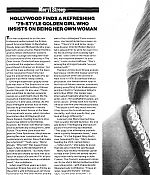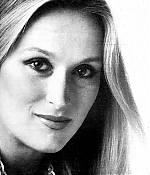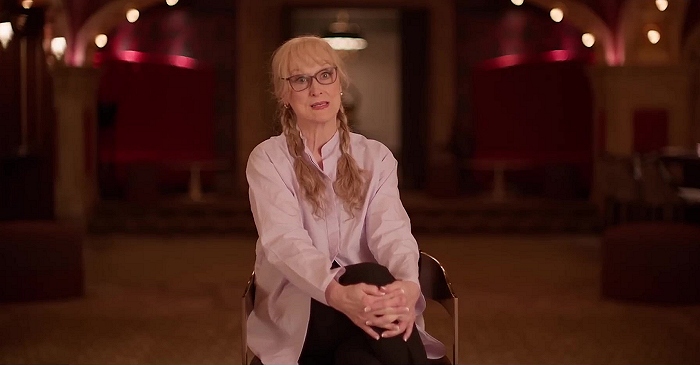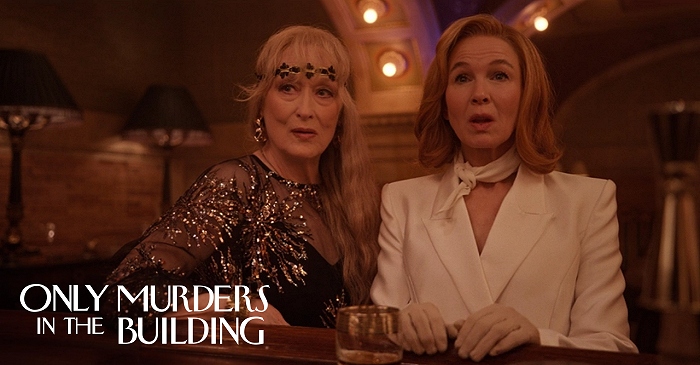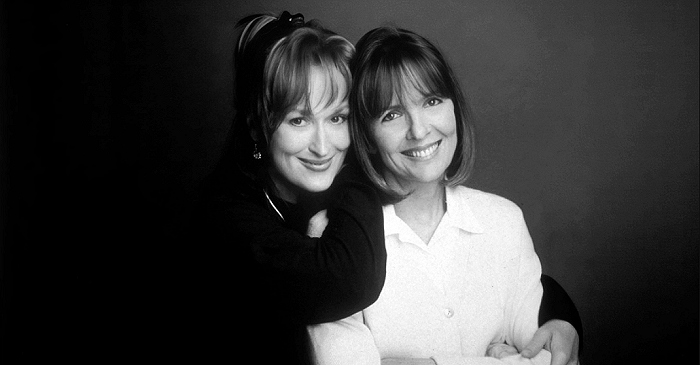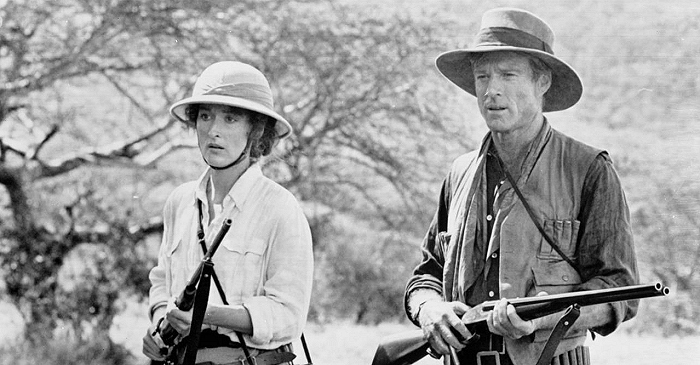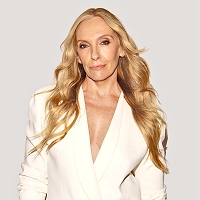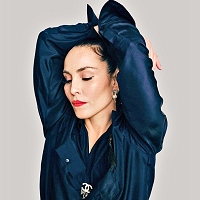|
Simply Streep is your premiere online resource on Meryl Streep's work on film, television and in the theatre - a career that has won her acclaim to be one of the world's greatest living actresses. Created in 1999, Simply Streep has built an extensive collection over the past 25 years to discover Miss Streep's body of work through thousands of photographs, articles and video clips. Enjoy your stay and check back soon.
|
|
Meryl Streep
People Magazine ·
December 24, 1979
| ||
Hollywood finds a refreshing ’79-style Golden Girl who insists on being her own woman.
This was supposed to be the year of Hollywood rediscovered the Endangered American Male. In “Manhattan”, Woody Allen and Michael Murphy grappled with urban anomie. Robert De Niro and his fellow steelworker-soldiers had their courage and willpower tested as prisoners of the Vietcong in “The Deer Hunter”. Dustin Hoffman poignantly explored the vagaries of single parenthood in “Kramer vs. Kramer”. Yet for all the male suffering, not the least of the resonance those films had was the extraordinary female who appeared in all three: Meryl Streep. Overnight superstar ubiquity aside (she was also in The Seduction of Joe Tynan), there will be no Meryl Streep poster this year. Or any year (Those who would like to see her exquisite cameo on a wall might check the Renaissance madonnas at their local museum.) In any case, Streep, 30, the most intelligent actress now at work, refuses to got to Hollywood – literally – and is the latest fixture of the New York expatriate scene, which includes soulsisters like Jill Clayburgh and Diane Keaton. Casting directors obviously know where to find Streep, however, for those I-Am-Woman roles once automatically consigned to Jane Fonda. Thus while Jane made her point in “China Syndrome”, Meryl was exploring the inner complexities of the contemporary woman. Does that make her a feminist? “Yeah, sure,” Meryl shrugs. “Why not?” Her cause these days, in fact, is the development of a male contraceptive. “So many women I know are unable to have kids as a result of lousy IUDs and the Pill, all prescribed by the male medical establishment,” she complains.
In her scant three years ago as a professional, Streep has won an Emmy as the artist’s wife in “Holocaust”, an Oscar nomination for “The Deer Hunter” and the awe of her colleagues. Even in minor roles, she has emerged as a major actress. “There’s no end to her range,” says Kramer director Robert Benton (who allowed her to write her own lines for the stunning court custody fight scene). “She’s one of the most sensible, well-adjusted people I’ve ever met.” Adds co-star Dustin Hoffman: “She’s among the strongest people I’ve ever worked with.”
The New Jersey-born Streep already had classy credits like Vassar and Yale Drama School when she arrived in New York in 1976. But almost without precedent, she landed seven roles in her first full theater season, eventually playing everything from Shakespeare and Kurt Weil to Tennessee Williams and Arthur Miller. Her career was interrupted tragically when her lover, actor John (The Godfather) Cazale, got bone cancer. Streep took five months off to be with him until the end and says, “The death is still very much with me It has forced me to confront my own morality, and once you do that, you look at things differently.” Late last year Meryl married New York sculptor Don Gummer, 33, and just before Thanksgiving she had a 6-pound 14.ounce boy by cesarean. “This baby is an affirmative commitment in pretty desperate times,” says Streep. “It’s the biggest thing that’s ever happened to me.” She’s breat-feeding the child, named Henry – “after Aaron”, she quips, to prove that she also reads the sports page. Meryl has backburned her career to nest in her SoHo loft before returning to work early next spring in John Fowles’ “The French Lieutenant’s Woman”. So far she is taking motherhood like everything else – with characteristic liberated-lady confidence. “I have always regarded myself,” Streep say, “as the pillar in my life.”


